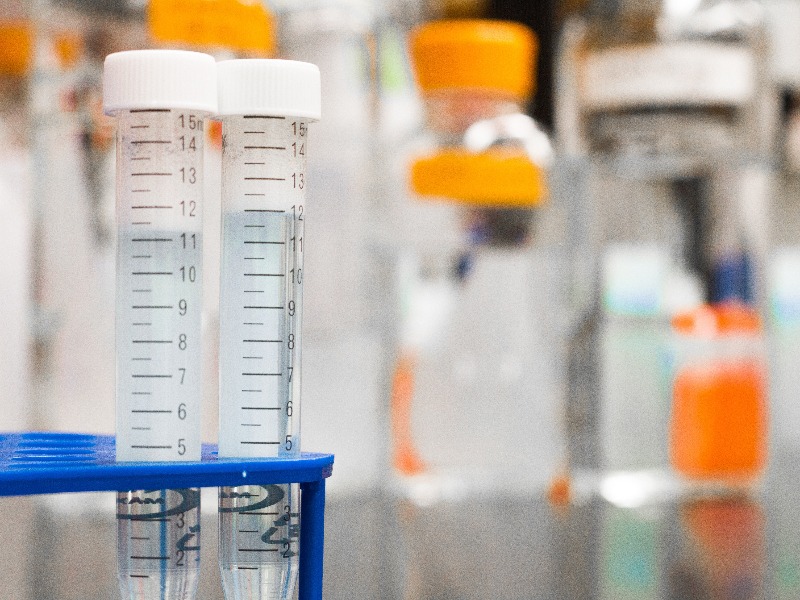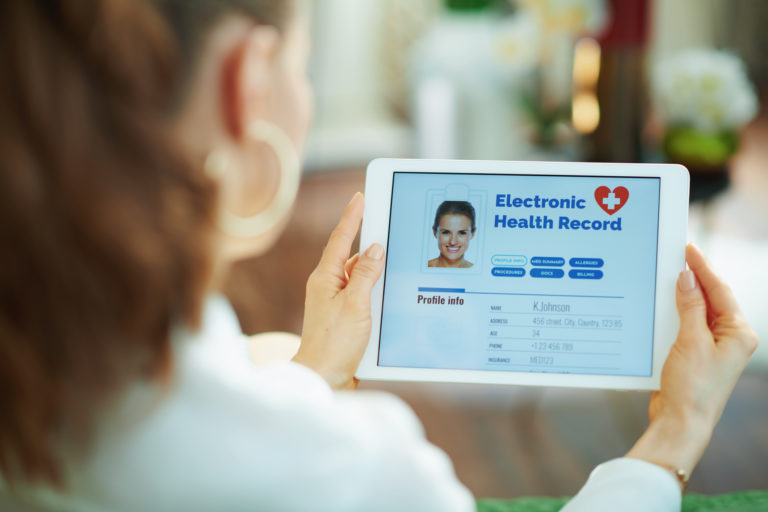New Healthcare Trend: Genetic Testing
Direct to consumer (DTC) genetic testing has taken off. In fact, by 2024, this market is anticipated to be worth $2.5 billion.
Just about anybody can provide a saliva sample, pay a relatively low fee, and send it off to receive the full breakdown of their genetic makeup, including where their ancestors are from and the names of relatives they have never known or met.
But DNA testing isn’t limited to country of origin or ancestral family tree. Many consumers are now turning to genetic testing to receive valuable information about their personal health profile, including diseases and conditions they may be at most risk for developing in the future.
Genetic testing has officially expanded into direct-to-consumer healthcare – providing unique insight that was previously only available through a physician, nurse practitioner, genetics counselor or other healthcare provider.
Increased access to knowledge about genetic makeup means that your patients can be more proactive about taking a customized approach to their personal healthcare…and may expect you, as their provider, to partner with them in this endeavor.
How Does it Work?
A person’s genome is created by a specific order of so-called “DNA building blocks.” The result is similar to a set of genetic “instructions” that determine what a person will look like, certain aspects of their personality, and lastly, their unique health traits.
Genetic testing is the process of obtaining a person’s genome and sequencing the genome to analyze it. Now that we have information about DNA sequences associated with specific diseases, researchers are able to identify those sequences in an individual’s genome – and identify their potential future risk.
DTC testing can help a person identify if they are at risk for developing:
- Breast and ovarian cancer
- Celiac disease (an auto-immune disease that can be treated by avoiding gluten)
- Age-related macular degeneration (results in loss of vision)
- Bipolar disorder
- Obesity
- Parkinson’s disease
- Psoriasis
- And more…
….all by identifying certain gene variants or mutations.
Of course, some of these disorders may already be active when a person gets their DNA tested.
However, diseases such as breast cancer and ovarian cancer may not surface until a woman is in her 50’s or 60’s. Learning about this predisposition decades earlier can help her take preventative steps to lower her risk of developing the cancer.
Genetic testing can also help a person identify how they react to certain pharmaceutical drugs, which provides valuable knowledge for current or future drug treatment.
This type of approach to healthcare is called precision medicine, or personalized healthcare…and it allows consumers to take more a controlled, proactive role in their own health.
Ultimately, the more genetic information that researchers and scientists are able to obtain, the more specific and targeted that DTC testing can become.
Genetic Testing + Artificial Intelligence
In the past, sequencing a genome was an expensive process that took up to a decade. Now, it can be done in as little as one day.
How?
Artificial intelligence has changed the game for genetic testing by rapidly and accurately identifying patterns in a person’s genome sequence.
A.I. is able to take an enormous amount of complex data and process it quickly, helping to make genome sequencing (and DTC genetic testing) easier and faster.
Though we have certainly come a long way in terms of this technology, most researchers and scientists would agree that we have only just begun tapping into the potential of applying A.I. to genetic testing.
Editing Genes: The Next Frontier
One of the most powerful possibilities of precision medicine and genetic testing is the ability to actually edit a gene by changing DNA at a cellular level.
For example, when a “dangerous” gene variant is identified, that gene can be “edited” out. Likewise, a healthy gene can be “edited in.”
While this could have exciting potential for treating certain diseases and conditions, gene-editing has questionable ethical and moral implications (“Editing” for any other reason than disease prevention or treatment, for example).
Your Patients and DTC Genetic Testing
As DTC genetic testing becomes more popular, accessible, and accurate, expect more patients to come into your practice with this kind of information in hand.
Some of the most popular services offering DTC testing include 23andMe (which offers ancestral information as well as genetic information focused on health), Veritas Genetics and Genos.
Ultimately, DTC genetic testing may prove to be a helpful tool for both you and your patient to engage in a more personalized experience. When your patient is already prepared with additional, in-depth insight into his or her genetic makeup, it can help you provide a higher level of quality care.
That being said, private healthcare providers should take steps to prepare for a potential influx of patients who have engaged in DTC genetic testing.
Educate Yourself
For example, patients who gather information from 23andMe are drawing from a fairly limited database of information, giving users a narrow perspective on their health.
Other companies may offer more information, but less explanation about what specific gene variants mean. So, don’t be surprised if patients come in with a collection of variants that they may not understand, but consider to be important to their health.
Of course, it’s not your responsibility as a provider to understand genetic code, but it could pay off to be educated about the various services…and to be prepared to explain to patients about potential gaps in accuracy.
Consider Personalized Healthcare Plans
Depending on your practice, consider how you might partner with patients to help them prevent the diseases for which they have been identified as at-risk.
For example, patients who know that they are at-risk for developing psoriasis can take certain measures to prevent environmental stressors that might trigger the condition, such as stress, diet and certain medications. You, as their healthcare provider, can help them develop a plan for prevention.
Patients who have mutations in their BRCA genes (a type of tumor suppressor) are more prone to developing breast cancer. When you know this information, you can help partner with your patient to prevent cancer, including encouraging frequent screenings and eating a healthy, antioxidant-rich diet.
Try it Yourself
One powerful way to prepare yourself to treat patients who have done DTC testing is to do it yourself.
As mentioned before, 23andMe is a popular service that does not require a doctor’s permission, but is limited in scope. Genos and Veritas are a bit more thorough – but also quite a bit pricier, at $499 and $999, respectively.
Ultimately, taking one of these tests can help give you more insight into these tests…and also potentially provide you with valuable information about your own health.
Ask About DTC Genetic Testing On Your Electronic Forms
Try including a question about DTC testing on new patient forms.
You might ask, Have you done any sort of direct-to-consumer genetic testing before? If so, please name service and summarize results.
Knowing beforehand whether an incoming patient might want to discuss their results with you will help you prepare for their visit.
Download our free mini guide on how to integrate tech into your patient care.
What’s Next?
As a healthcare provider, it may feel overwhelming to keep up with the ever-evolving landscape of technology in medical care.
You may be eager to embrace trends like DTC genetic testing…or dread their potential introduction into your own practice.
In any case, it pays to be prepared and consider how you might strategically use new technologies to your advantage, helping you to provide higher-quality, more patient-centered care that will keep patients coming back again and again.



